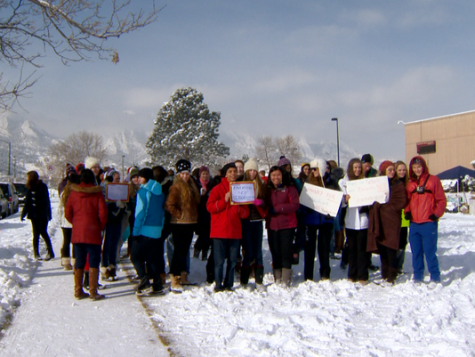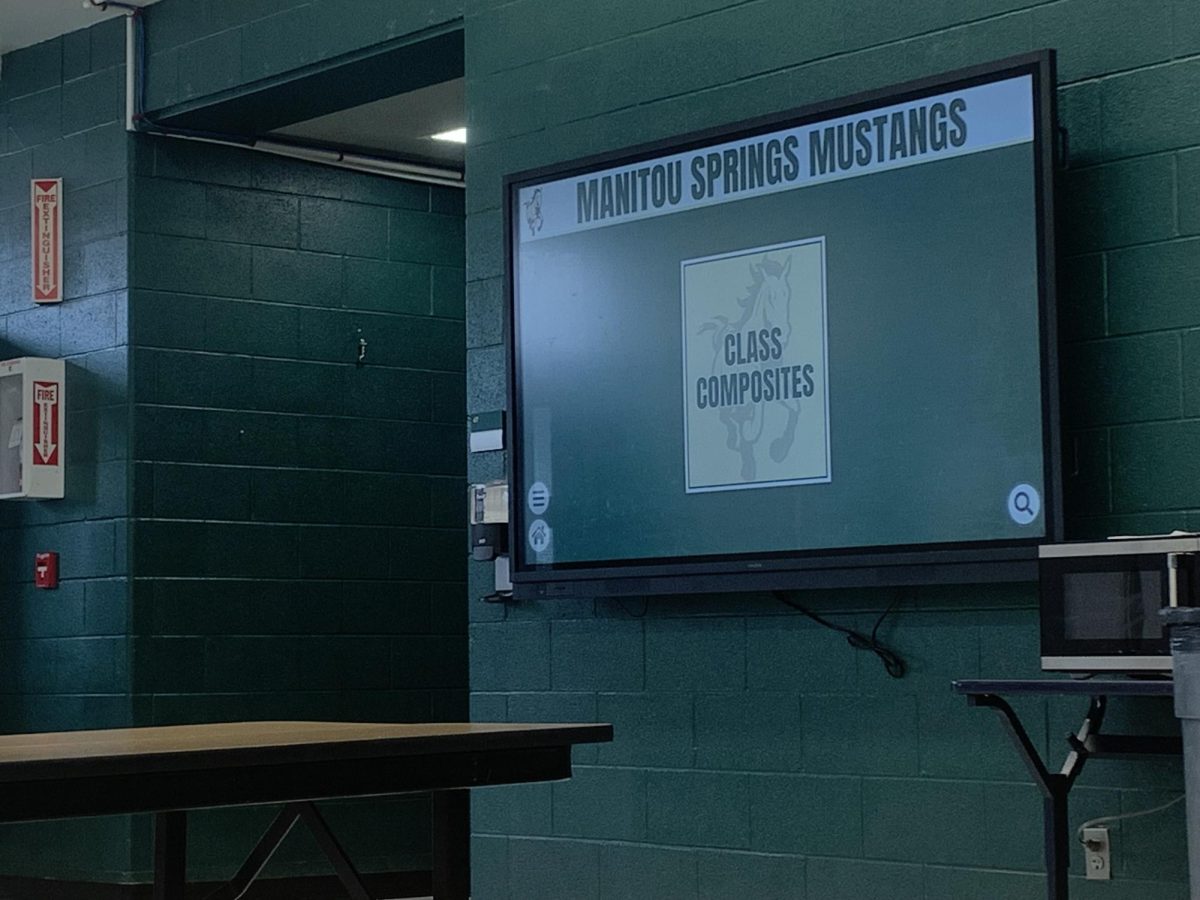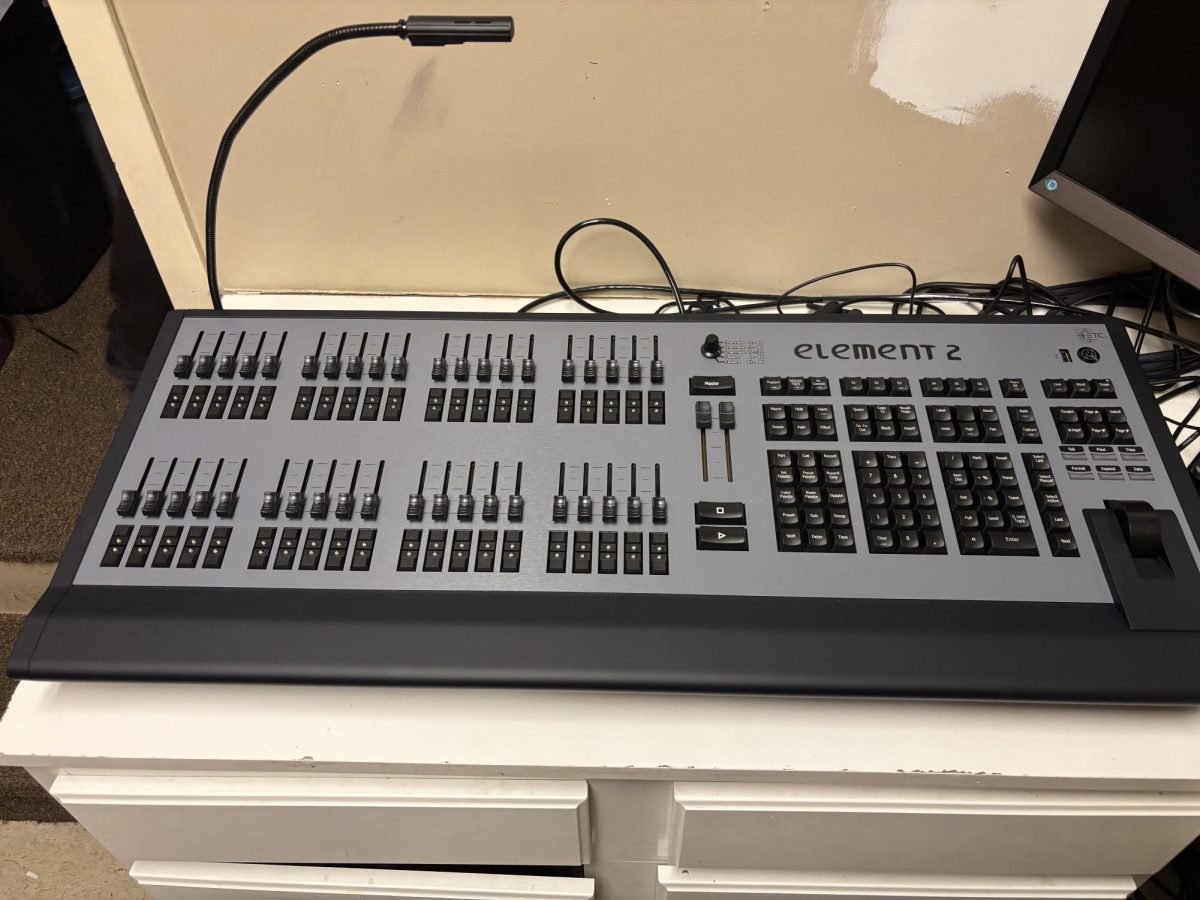Manitou preps for new generation of tests
March 6, 2015
Over the course of the past couple of years, Colorado has transitioned from the CSAP standardized testing program to the TCAP program. This year the state switched once again, to the displeasure of many students and administrators. Starting in 2015, all students from 3rd grade through 11th grade must complete the PARCC test for their grade instead of the TCAP test.
The state of Colorado’s decision to change the program happened hand in hand with the switch to Common Core. PARCC stands for Partnership for Assessment of Readiness for College and Careers. The “Partnership” portion of the name signifies the partnership that Colorado and 12 other states have participated in to help standardize testing.
The goal for the PARCC test is for the students who take the test to be ready for further education after high school and any future career that they might want to pursue. The test aligned itself with the Common Core standards, which are supposed to be more rigorous and constant across all of the states who have adopted the Common Core program. 43 states and the District of Columbia have started implementing the Common Core standards, and most of them are moving towards the change to the PARCC test which goes with it.
In this partnership, the schools of the students who take the PARCC test will have a more accurate way of comparing themselves to the other students across the nation. Some colleges have supported the Common Core standards and the PARCC test because it will also give them a more complete view of their applicants.
Teachers, however, have some varying views. Many find the PARCC test isn’t any better than the previous CSAP or TCAP tests for students or schools. Others have an issue with the principle of having someone not native to the area telling teachers what needs to be taught and when; some schools don’t have the same resources, and therefore can’t teach at the same pace as other schools. Either way, the problems generally don’t correlate with the PARCC test, but rather the Common Core standards that come with it.
Blaine Miller, an English teacher at Patriot Learning Center in District 49, sees the test as being used for the wrong reasons:
“The problem is how the results are used. Too often, the results of a test are used as punitive measures when they should be used (I believe) to diagnose and when necessary, remediate. A test of such magnitude could be used as a classroom placement and readiness measure in a subject such as math or English.”
Miller thinks that rather than compare the students with their peers on a national level, the PARCC test or one like it should be used to place students in advanced classes or classes that give extra help to the students enrolled. Other teachers and administrators are worried that the results from the test might be used to heavily assess the school as a whole, and that the students might hold too much power.
“Too many students don’t take the test seriously. The fact that the results of students who simply do not care and therefore don’t try on the test are used to judge schools and teachers just seems ridiculous to me,” said Miller.
It’s hard to say how the students feel about the new PARCC test; 2015 is the first year that PARCC tests will be passed out to students. However, many are trying to get their parents to sign them out of the test, meaning that the student wouldn’t have to take the test at all. Students across the nation have voiced their opinions of the PARCC test by organizing walk-outs, where many would simply stand up and leave the school in protest.
One such case was at Highland High School in Albuquerque, New Mexico. As reported by KRQE, a news channel in Albuquerque, an estimated 60 to 70 students walked out of Highland High School. However, across the Albuquerque Public Schools’ population, an estimated 900 to 1,000 students removed themselves from the testing rooms.
Students here in MSHS have also considered dropping out of the test.
“My parents don’t like the common core standards, so they want me to opt out of it, kind of in protest,” says sophomore Monique Heiniger.
Unfortunately for some, the testing will be happening on March 10th and 11th. The state officially requires 95% of students to take standardized tests; however, they have agreed not to punish school districts whose students decide not to participate. Few students at MSHS have actually called in to drop out of the PARCC. Either way, there is really no way to tell how the testing will go over with the students and their parents until they actually take the test.
Schools across Colorado have also started to implement another new test, focusing on science and social studies. This test is called the Colorado Measures of Academic Success (CMAS). The social studies portion will be taken in grade 4, grade 7, and grade 12, and the science portion will be taken in grade 5, grade 8, and grade 12.
The test was implemented in 2014 in a large push by Colorado to improve education by adjusting and changing standards and testing. The title of CMAS also encompasses the new PARCC testing that arose with new Common Core Standards; however, it does not affect the PARCC test in Colorado or any standards. The purpose of the test was to ensure that teaching of science and social studies was being done well and correctly in order to prepare students for college and the work force.
The reception of CMAS testing for seniors and parents across Colorado went down the drain. Thousands of seniors across Colorado walked out of their CMAS testing in protest for the general reason that too much testing already exists, and enough is enough.
The largest protest occurred at Cherry Creek High School in Greenwood Village, Colorado; only 3% of the seniors ended up taking the test, the other 97% walked out with parent permission. In Douglas County the highest percentage for assessment completion was a mere 83%.

In the end, in 2014, only 60,000 tests were completed out of the 100,000 tests that were administered. All of the students that opted out had to acquire parent permission or else it would be counted as an unexcused absence. Many parents also are in complete opposition of CMAS testing in the same mindset as their student: there are already too many tests.
Many other students and parents didn’t find a problem with the CMAS test. From the parent’s point of view it will improve their student, enable them to do better on the ACT, and allow them to look at how they are doing compared to peers.
From the student’s side many feel it doesn’t really change, just another simple test required by the state. Many seniors appreciated the test. Spencer Aurand, a senior at Manitou Springs High School thought the test was too easy:













































